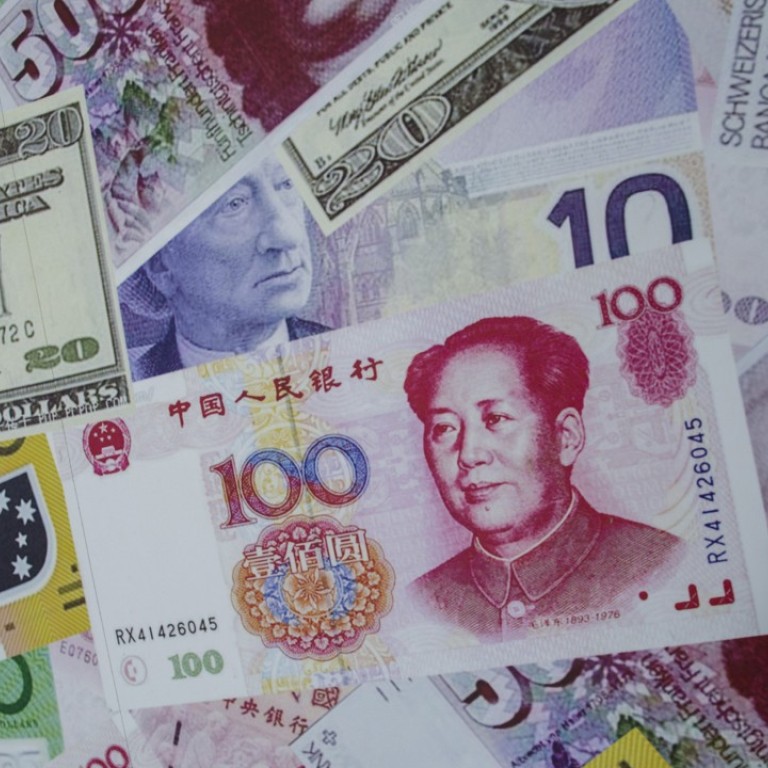
China’s new way to kick the can down the road on government debt: longer-term bonds
Local authorities will now be allowed to issue 15- and 20-year bonds
Beijing has taken new measures to ease debt repayment pressure on local governments, allowing them to issue longer-term bonds.
The finance ministry will for the first time allow provincial and municipal governments to issue 15- and 20-year bonds – previously the longest maturity was 10 years – according to a notice released earlier this week.
It comes as market interest rates have edged up while the supply of fresh funds dried up, adding to the pressure on indebted local authorities. With a longer term, local officials can postpone the bond repayment date for their successors to deal with – it is unusual for a provincial governor or mayor to stay in the same post for 15 or 20 years.
“Debt repayment pressure is big this year, particularly for some of the local governments,” said Wen Laicheng, a professor of fiscal science at the Central University of Finance and Economics in Beijing. “It’s a standard practice that many new issuances will be used to repay old debt.”
A national audit in 2014 confirmed for the first time the size of the debt owed by local governments – 15.4 trillion yuan (US$2.42 trillion), along with 8.6 trillion yuan of contingent liabilities. Soon after, Beijing introduced a programme to replace these debts with more transparent bonds, which the legislature later put an annual cap on, and strictly regulated under a new budget law. About 3.2 trillion yuan of such liabilities were swapped into bonds in 2015, with one major type that matured after three years on most occasions being rolled over.

A longer maturity could stave off an outbreak of financial risk, leaving more room for Beijing to manoeuvre and work out how to tackle the national debt mountain. But since the overall size of that debt pile remains high, it also raises the question of whether Beijing is simply kicking the can down the road.
While the emphasis has been on preventing the situation from worsening, local governments have not yet been able to cut their debt levels. Confirmed liabilities jumped to 16.5 trillion yuan at the end of 2017, but many believe there is implicit debt – obligations with an implicit state guarantee – deeply buried in state-owned firms, financing vehicles and public-private partnership (PPP) projects to fund construction.
The finance ministry has scrubbed some 1,695 projects – involving 1.8 trillion yuan of planned investment – from its pool of PPP projects so far this year.
Local bond issues this year are expected to be up slightly from last year’s 4.36 trillion yuan, but so far there have been significantly fewer compared to 2017. There were 519.2 billion yuan of bond issues in the first four months – only 65 per cent of the amount issued in the same period last year.
The next three months could be busier, fixed-income analyst Sun Bingbing, from Tianfeng Securities, wrote in a research note. Sun expected many local governments would be seeking to issue bonds in that period, and their pricing would have to be more market oriented if they were to lure enough investors. Such bonds have previously been bought by state-owned banks, securities brokers and insurers because they were deemed to come with an implicit government guarantee.
Iris Pang, chief economist for Greater China at ING, said rising defaults of local government financing vehicles – including the recent case of a property firm owned by the Tianjin authorities defaulting on 500 million yuan of trust loans – had pushed investors towards treasury bonds.
Chinese investors were also more focused on safety than in the past, she said, and that would have an impact on local bond issues.
To ease market concerns, the finance ministry said it would control the size of long-term bonds – those with a maturity of more than seven years will be capped at 60 per cent of their total, based on a quota for the province. Issuers will also be forced to disclose more financial information, and buyers will be allowed to use the local bonds as collateral for interbank trading and repurchases.
The authorities are also trying to lure more overseas investors through Shanghai’s pilot free-trade zone, encouraging foreign financial institutions to underwrite those bonds, and retail investors will be able to buy them at bank counters.
But according to Pang, “the interest from foreign investors remains very low”.

